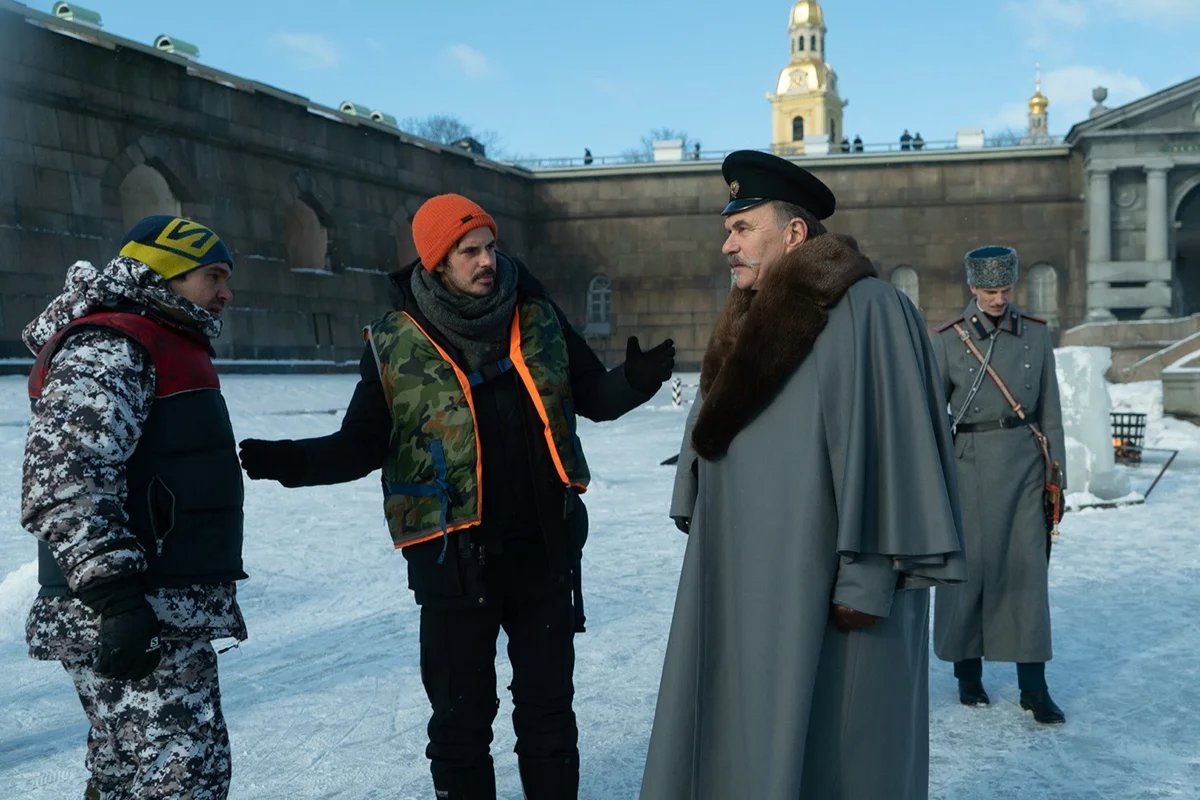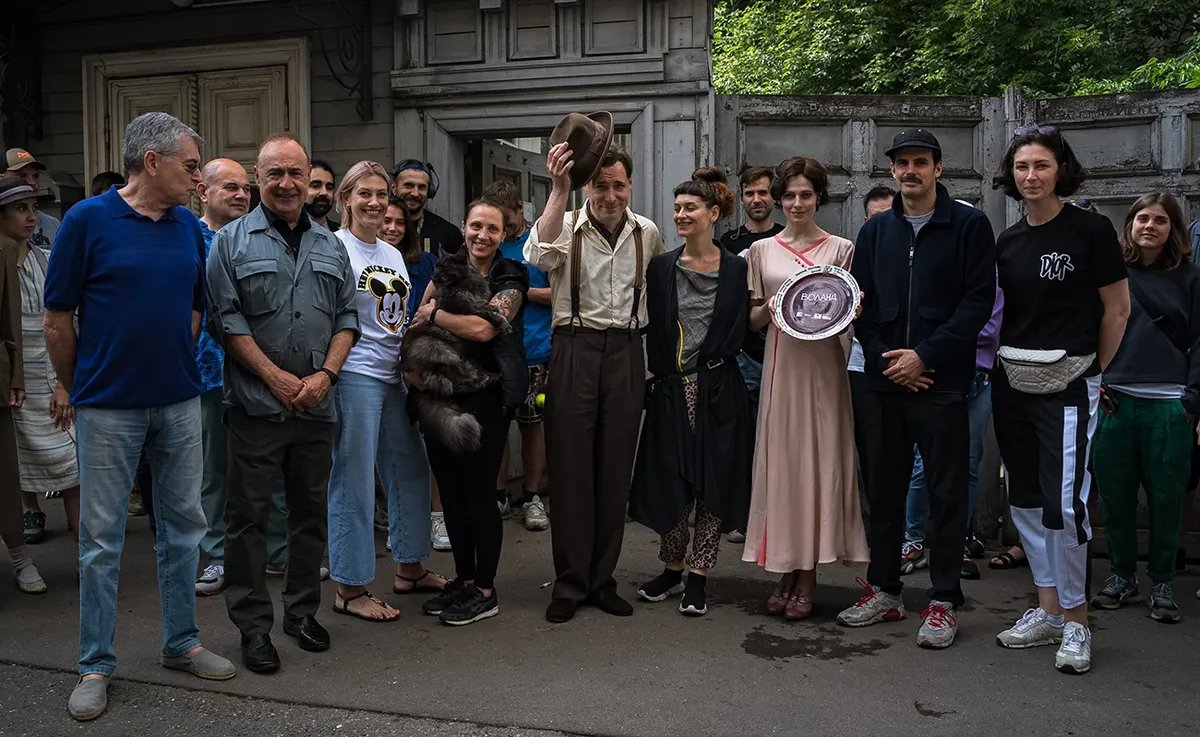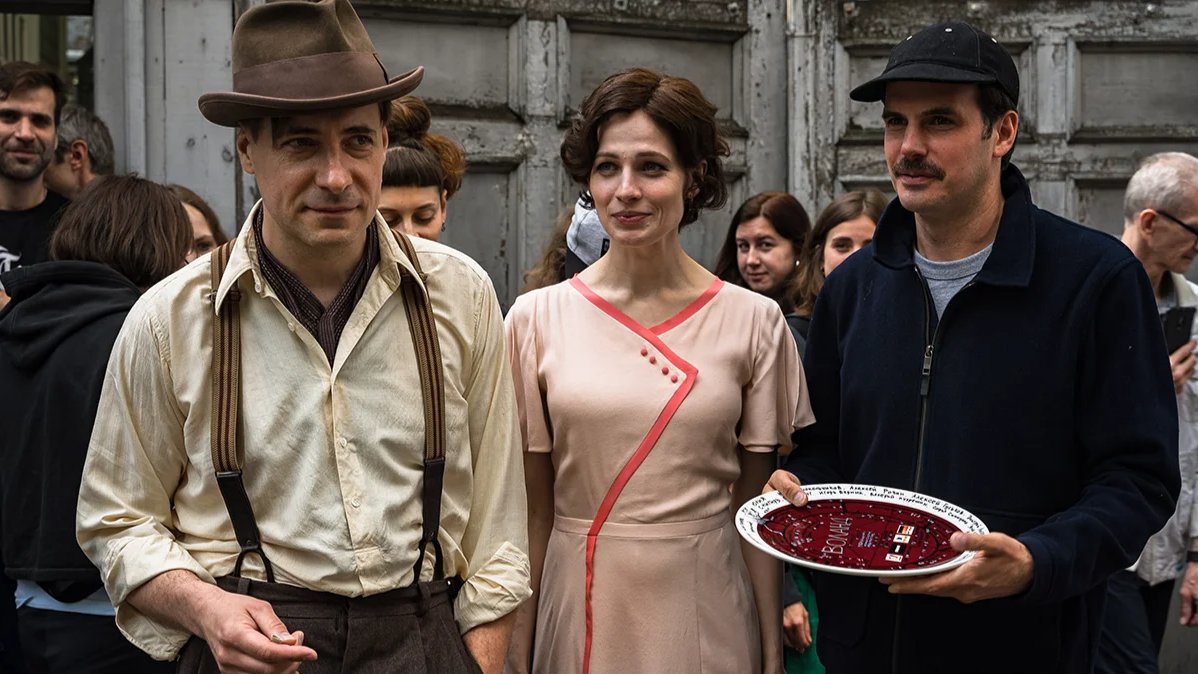The new film version of Mikhail Bulgakov’s classic novel The Master and Margarita became an instant box-office hit when it was released last month, grossing over 1 billion rubles (€10 million) in its first two weeks in Russian cinemas alone.
But while the film has proven both a commercial success and a critical hit, its American director has drawn the ire of pro-government media and commentators. Not only was the film made by the US-born, anti-war director Michael Lockshin, but a significant proportion of the film’s estimated 1.2 billion-ruble (€13.7 million) budget was provided by Russia’s state-run Cinema Foundation.
The outcry in nationalist circles at Russian taxpayer money being used to fund the work of a “Russophobe and Ukraine supporter” has already led to the film’s production company, Mars Media Entertainment, being barred from receiving funding from the Russian state in 2024.
State support
The Lockshin character assassination began on right-wing Telegram channels within days of the film’s release on 25 January. Among the first to draw attention to the film’s back story was Readovka, a pro-government news channel.
“The film’s director is an avid Russophobe and Ukraine-supporter, Michael Lockshin, who seems quite happy to have his cake and eat it by sending money to Kyiv while filming for the Russians he hates so much. … Having earned his blood money, he then went to the US and started slinging mud at our country on social media and promising that generations of Russians would pay reparations to Ukrainians," the post read.

Michael Lockshin on the set of Silver Skates. Photo: Capital Pictures / ddp / Vida Press
Other Telegram channels began sharing screenshots of Lockshin’s social media posts condemning the war and reposts of investigations into the Bucha massacre.
Nationalist writer and politician Zakhar Prilepin, who in 2017 boasted of having fought alongside pro-Russia separatists in eastern Ukraine, was more outraged by the actions of the Cinema Foundation than the views of Lockshin himself.
“I have no problem with Michael. He just doesn’t like Russian imperialism, although he doesn’t mind American imperialism. That’s his choice. But the Russian film authorities make me sick sometimes,” he said.
Moscow city councillor and state television journalist Andrey Medvedev said providing state funding in this case was an act of masochism, saying that Lockshin believed “that Russia was behind the massacre in Bucha. But the state … gives him money. Why is that?"
Radio host Trofim Tatarenkov accused Lockshin of “longing for Russia’s defeat and wishing death to Russians … I haven’t watched [the film], but I expect he portrayed the Soviet secret police as scumbags and monsters — the same police who saved the country from scum like him. I’m sure, I’d bet on it. And yet somebody gave this scumbag money for his film”.
Tatarenkov may not have watched the film, but tech entrepreneur Olga Uskova did, calling it a “dirty rehashing of the great Bulgakov”, and saying that she had been particularly outraged by a scene depicting “Stalin’s Moscow” on fire — the same city that had “overcome all adversity and defeated the fascists from 1941 to 1945,” and where “our grandmas and grandpas lived, worked and loved each other”.

Michael Lockshin with the cast and crew of The Master and Margarita. Photo: MARS MEDIA
Journalist Natalya Oss asked whether it was possible in wartime to “release a film on the same terms as before, with no disclaimer or statement, if its director wants Russia to be defeated and punished?”
Some Telegram channels even began criticising the excessive punishments dished out to other Russians convicted of spreading “false information” about the Russian Armed Forces.
"Some idiot who likes a stupid Ukrainian psyop meme on social media gets two years behind bars, but we’re quite happy to bankroll an enemy who openly wants Russia to lose,” read a post on the Dads Read the News Telegram channel.
“What’s going on? Some people get years in prison for something they said on social media, while others get a couple of billion from the state budget for their film,” wrote blogger Yelena Yakimchuk.
Accusations
The far-right Call of the People movement demanded the authorities open a criminal case against Lockshin for spreading “false information” about the Russian Armed Forces, declare him an extremist and terrorist, and restrict him from earning money in Russia. It also suggested not paying Lockshin his share of the film’s profits.
Propagandist television presenter Tigran Keosayan, meanwhile, speculated that Lockshin may have been sending money to the Ukrainian Armed Forces (UAF).
“If it’s true that Michael Lockshin … donated to the UAF and holds anti-Russian views, then we seriously need to sit down and sort this whole situation out, starting with the producers and ending with law enforcement agencies," he wrote on Telegram, adding
“This isn’t even about money from the budget. It’s about our country’s masochistic tolerance of blatant enemies.”
Another Telegram channel, The Countess with a Changed Face Runs to the Pond, posted a screenshot from Lockshin’s Facebook page which it claimed proved he had donated money to the UAF. In reality, the now-hidden post was about supporting the Ukrainian filmmakers’ association Babylon’13.
“Babylon’13 is now launching a fundraising campaign to support Ukrainian documentary filmmakers at war. The money will go to provide filmmakers with equipment and cover the expenses directly connected to their work at the frontline. This will help bring true stories about the Russian-Ukrainian war to a vast international audience, supporting Ukraine’s fight for freedom, democracy and independence," the fundraiser’s creators explained.
The Telegram channel, however, had its own interpretation of the fundraiser’s intentions: “Maybe the equipment … was used to film the fake massacre in Bucha, too? Did he donate to the UAF? Definitely. This is informational support for the UAF on the frontline, and the text says as much.”
Propagandist TV presenter Vladimir Solovyov didn’t pass up the opportunity to share his thoughts during his Sunday evening show, either.
“Now everyone’s talking about this little director who — partly using American money and partly using the government money he was given for some reason — made a film of a great work of classic Russian literature. … On top of that, he’s also donating to the UAF. And our reaction is: well, okay then. Really?” he said.
His guest, RT editor-in-chief Margarita Simonyan, responded that “It’s absolutely not okay, that’s not our reaction at all”. Solovyov added that things must be "thoroughly investigated before decisive conclusions are drawn”, before warning that “it’s time for everyone to wake up, across the board. This isn’t going to just blow over. It’s time for everyone to come to their senses.”
Join us in rebuilding Novaya Gazeta Europe
The Russian government has banned independent media. We were forced to leave our country in order to keep doing our job, telling our readers about what is going on Russia, Ukraine and Europe.
We will continue fighting against warfare and dictatorship. We believe that freedom of speech is the most efficient antidote against tyranny. Support us financially to help us fight for peace and freedom.
By clicking the Support button, you agree to the processing of your personal data.
To cancel a regular donation, please write to [email protected]

